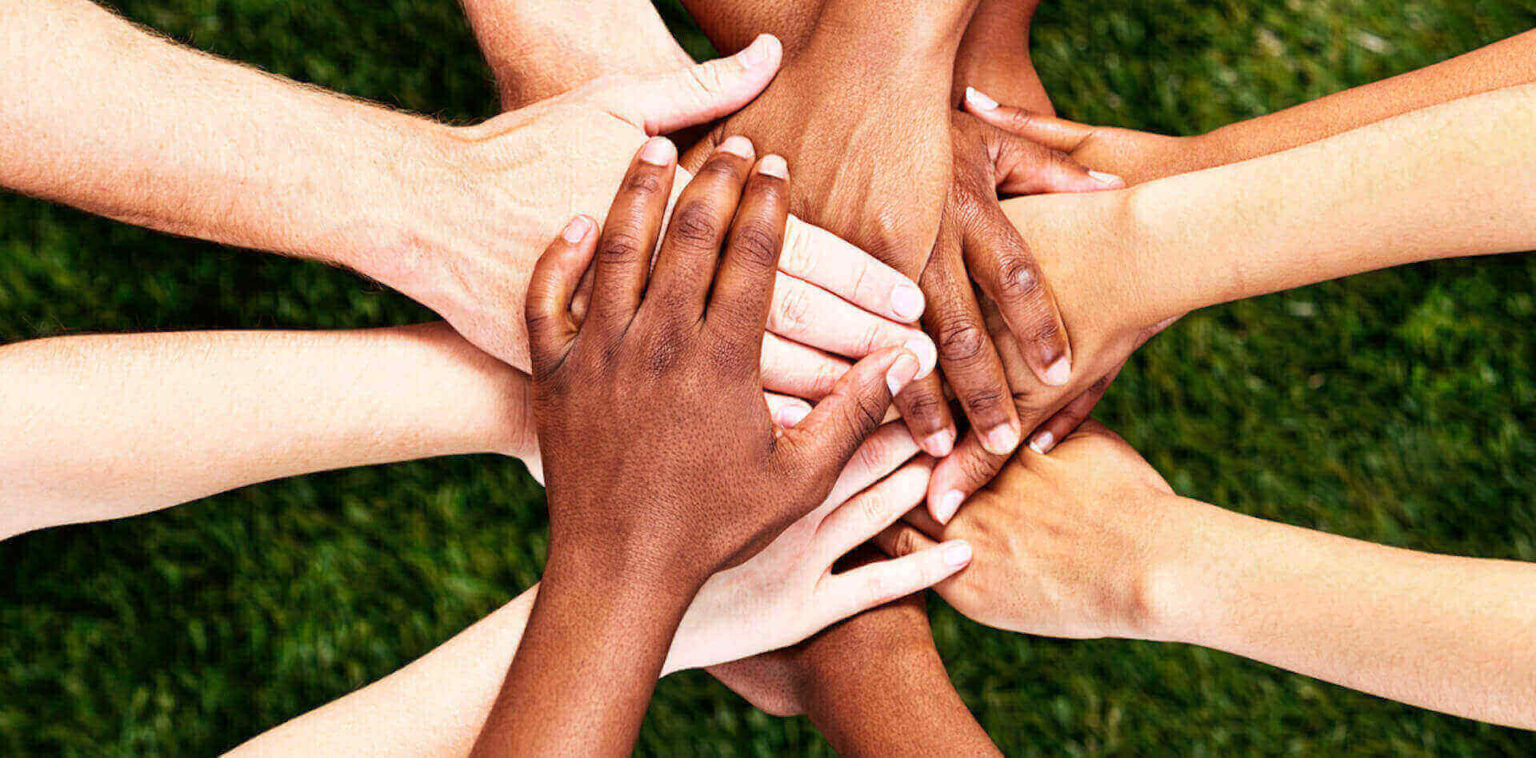6 ways ILGA-Europe practice intersectionality

Over the past decade, ILGA-Europe has embarked on a learning journey to become an organisation that genuinely adopts an intersectional approach in all its work. But what does true intersectionality mean, and how can it be integrated into the work of the LGBTI activist movement?
This blog is based on a conversation between former ILGA-Europe team member Valeria Santostefano, former Executive Director Evelyne Paradis, and our new Executive Director Chaber for a special Frontline podcast episode in which they discuss our organisation’s journey over the past two decades towards adopting a more intersectional approach in our work.
Understanding intersectionality
Intersectionality, a concept coined by leading scholar of critical race theory, Professor Kimberlé Crenshaw, is a framework that recognises how various aspects of our identities, experiences, and backgrounds impact our lives, opportunities, and access. It emphasises that people are multifaceted, acknowledging that factors such as race, gender, sexuality, and class intersect to shape unique experiences of discrimination and privilege.
ILGA-Europe’s journey
ILGA-Europe has always recognised the need to include diverse voices and experiences. However, it was only in the mid-2010s that we began to critically question our own structures and practices. According to Evelyne Paradis, who was Executive Director of ILGA-Europe at the time, this shift involved reassessing the organisation’s practices to ensure inclusivity, rather than expecting others to fit into the existing structure.
Six ways ILGA-Europe has grown in practicing intersectionality
1. Recruitment practices
ILGA-Europe made a concerted effort to attract a diverse pool of applicants by re-evaluating our recruitment criteria and processes. We adjusted criteria to be more inclusive, removing barriers such as requiring certain levels of formal education or specific work experiences.
2. Event accessibility
During our annual conference and other events, we have implemented measures to ensure accessibility for all participants. This includes providing materials in multiple languages, ensuring venues are accessible to people with disabilities, and offering travel grants to individuals from underrepresented communities.
3. Advocacy and policy work
ILGA-Europe has broadened its advocacy to include issues that intersect with LGBTI rights, such as socioeconomic inequalities, asylum and refugee rights, and access to healthcare. By working alongside other organisations focused on these areas, we aim to address the multifaceted nature of discrimination and ensure a holistic approach to human rights.
5. Rainbow map recalibration
We recalibrated the Rainbow Map to place less emphasis on marriage equality and more on other critical issues such as legal gender recognition, hate crime legislation, and access to asylum. This shift recognises that while marriage equality is important, other areas require attention to achieve true equality.
6. Changes based on feedback
Chaber, the new Executive Director of ILGA-Europe, emphasises the value of receiving and acting on critical feedback. Detailed feedback that highlights unseen areas and areas needing improvement is crucial for understanding how to better support and represent underrepresented communities.
Building blocks for intersectionality
Building a learning organisation has been a fundamental aspect of our development. This involved dedicating time and resources to reflection and improvement, forming a working group on diversity and incorporating intersectionality into our annual planning. We also emphasise the importance of clear communication about our mission. While we are primarily an LGBTI rights organisation, we adopt an intersectional approach to ensure that our advocacy and support encompass a broad range of issues affecting our community. This includes addressing socioeconomic inequalities, working on issues of asylum and refugees, and engaging in broader human rights advocacy.
Sharing our learning with the wider movement
Recognising the value of not only integrating our learning around intersectionality in the materials we provide to help build the movement, such as publications, toolkits and skills boosts, we have published a number of resources on the ILGA-Europe Hub, which provides free and easy-to access learning cards, including on how to integrate intersectionality in your organisation, in policy and advocacy work, in recruitment processes, and in communications. The Hub intersectionality cards can be found here. If you don’t already have an account on The Hub, it’s a completely free-of-charge resource that’s super easy to join.
Moving forward
Starting small, such as having conversations about intersectionality within teams, can build into more substantial change. ILGA-Europe remains committed to this ongoing process, continually exploring how to make our work more accessible and representative of the diverse LGBTI community.
For a more in-depth discussion on how ILGA-Europe has worked to integrate intersectionality across all our work, listen to our special episode of The Frontline podcast.